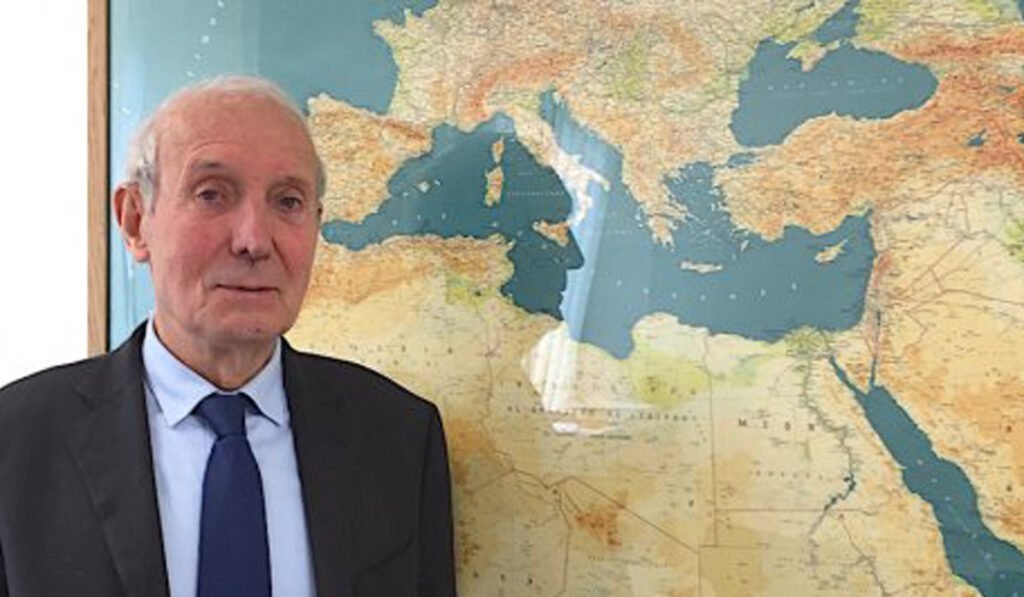Algeria can open up Africa in depth and become the electric battery of Europe
The war in Ukraine requires a new political, but also economic and geographical strategy. Europeans want to free themselves from Russian gas and oil; Africans, who are experiencing a great distortion between a galloping demography and modest economic growth, have energy and are looking for wheat and oilseeds.
In this new energy situation, Algeria has a key role to play. As early as 2010, the Institute for economic Foresight of the Mediterranean World (Ipemed) came to the conclusion that France and Algeria are to the Mediterranean what France and Germany were to Europe. Nothing can be done in the Mediterranean without the return of trust between France and Algeria.
In order to overcome the painful past of the two world wars, the Germans and the French had the intelligence and the courage to bond by energy by creating, in 1952, the Economic Community of Coal and Steel (ECSC). They invited other European countries to join them. It was a success. Energy is an area capable of triggering a large-scale regional integration, in the long term. Thus, in 1957 the European Economic Community (EEC) was created.
To overcome the traumas of history, there can only be an ambitious historical project. Why not imagine setting up this Euro-Mediterranean energy community that would involve, in the long term, producing countries and consuming countries? The idea was already mentioned in a joint communication by the European Commission and the high representative of the Union for foreign affairs and security policy on 8 March 2011: an “Energy community between the European Union and the southern Mediterranean would be addressed first to the Maghreb countries and could gradually spread to the Mashrek countries”.
Ten years later, we have not moved forward. We have not been able to forge a strategic partnership between the two shores of the Mediterranean, based on co-productions and the sharing of added value. The war in Ukraine today sheds light on the serious disadvantages of the lack of a Euro-Mediterranean energy strategy.
In less than ten years, the southern shore of the Mediterranean could compensate, with hydrocarbons first and then solar, for the energy we buy from Russia. In exchange, Europe would commit to preferentially deliver to the countries of northern Africa, from Egypt to Morocco, the cereals and oilseeds they need while providing them with support to rebuild their cereal production potential.
In this perspective, Algeria, with its rich fossil and solar energy potential, its geographical position as a node for a network of gas pipelines between Egypt, Nigeria, Senegal and Mauritania and Europe through Italy and Spain, can become the “electric stack” of Europe. It can also open the African continent to European productions in depth thanks to the trans-Saharan road project that will connect Mediterranean ports to the Sahel and deep Africa to open up to the Gulf of Guinea.
For several years, Algeria has been working discreetly with five other African countries on one of the largest spatial planning projects in the world: a corridor, a veritable backbone combining highways, gas pipelines, Internet and railways, connecting Mediterranean ports (Tunisia and Algeria, including a deep-water port in Cherchell) to the port of Lagos.
Crossing Africa in six days, while reaching Algiers to Lagos by boat takes three weeks, would constitute a considerable saving, a major impetus to connect these countries, and Africa to Europe.
This north-south vertical axis, but also south-north between Europe and Africa, would also be a south-south axis (regional integration of West Africa) and would economically integrate North Africa and sub-Saharan Africa. It would create jobs for the youth of the Sahel in special economic zones. It is understood that the Europeans must make Africans an offer of partnership as strategic as the Chinese with the “new silk roads”. China could be the big winner of the war in Ukraine that will divide Europe for a long time and offer it the Russian economy. Let’s make sure she doesn’t win in Africa too.
By initiating this triple Euro-Mediterranean agreement on energy, agricultural production and the valorization of the Trans-Saharan, Algeria and France would stimulate a mobilizing project like the ECSC was once, offering long-term development prospects, valuing proximity, complementarity and solidarity in the face of the challenges that threaten us all.
Jean-Louis Guigou, founder of the Institute for economic foresight of the Mediterranean world (Ipemed)
Translated by Hope from https://lapatrienews.dz/tribune-parue-ce-vendredi-dans-le-journal-le-monde-lalgerie-peut-ouvrir-en-profondeur-lafrique-et-devenir-la-pile-electrique-de-leurope/





